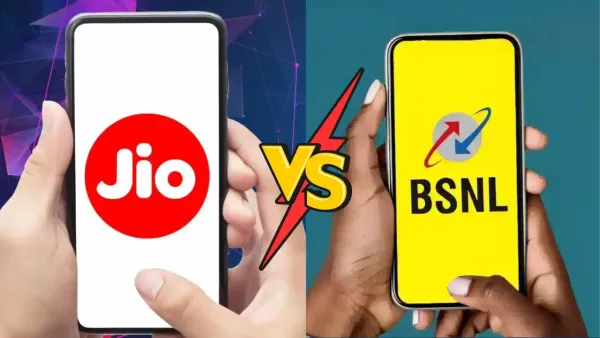
In a bid to capture the growing demand for long-term prepaid plans, Jio has introduced several revamped offerings, including a budget-friendly 70-day plan priced at Rs 666. While BSNL continues to target price-conscious customers, Jio’s feature-rich plan has gained an edge, delivering more value to its users. Here’s a detailed comparison of the 70-day prepaid plans from Jio and BSNL.
Priced at Rs 666Jio’s 70-day prepaid plan stands out with its extensive benefits. Key features include:
With seamless national roaming and uninterrupted data services, Jio’s plan offers a comprehensive solution for users who seek long-term value, especially those who rely heavily on data and entertainment apps.
BSNL’s 70-day plan, priced at Rs 197is significantly cheaper but offers limited benefits:
While BSNL’s plan may seem attractive for light users due to its low upfront cost, the benefits diminish after 18 days, making it less appealing for users seeking consistent long-term service without interruptions.
At first glance, BSNL’s Rs 197 plan appears to offer an unbeatable price advantage. However, the lack of continued benefits beyond 18 days makes it less competitive for primary users. In contrast, Jio’s Rs 666 plan ensures consistent service throughout the 70-day period, with uninterrupted calling, data, and additional perks such as access to Jio’s content platforms.
For users looking for a primary SIM with reliable data, calling, and entertainment options, Jio clearly emerges as the better choice. Meanwhile, BSNL’s plan could be a suitable option for those who use it as a secondary number or prefer a low-cost option for minimal usage.
Jio’s ability to bundle affordable plans with premium services like Jio TV and Jio Cinema has been a game-changer in India’s telecom market. By consistently offering rich data benefits, seamless connectivity, and additional content services, Jio has maintained its dominance over competitors, including state-run BSNL.
On the other hand, BSNL, despite offering low-cost plans, struggles to retain customers due to its limited network coverage and inconsistent service quality. While BSNL’s low-cost strategy appeals to a niche market, its inability to match Jio’s long-term benefits makes it difficult to compete in the high-demand telecom space.